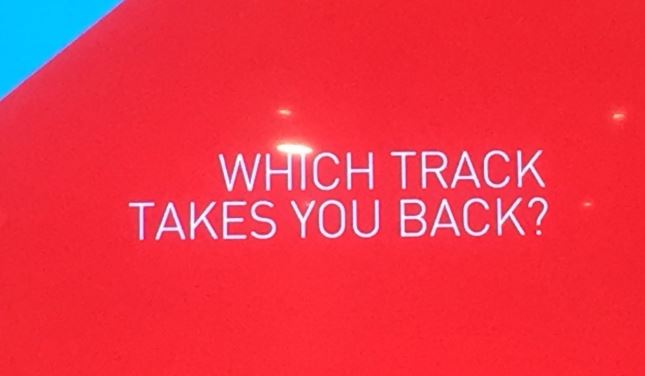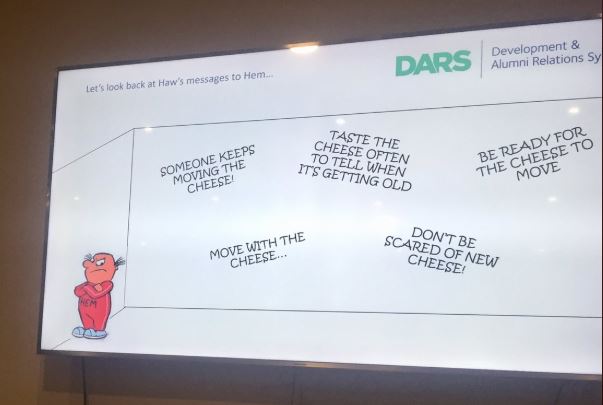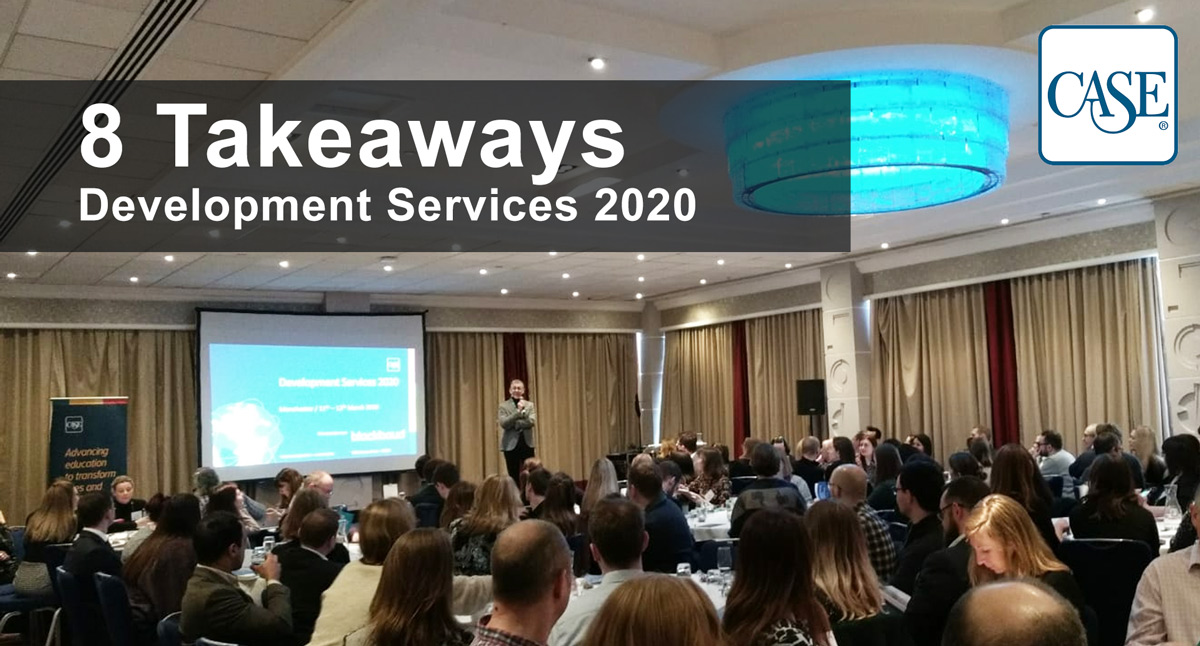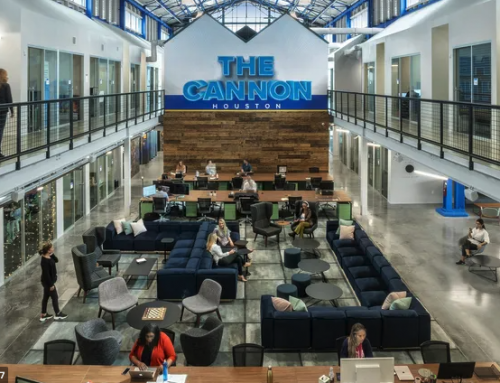
1: Target Audiences Using Pop Culture
Targeting different generations of Alumni with pop culture really works!
The University of Southampton created a campaign asking alumni to identify a song they associated with their time at university.
The results were that over 3000 email addresses were confirmed and updated, 300 new emails were added, 1500 career data updates were made, and 1,965 members were newly engaged!
2: Positive Experiences as Students Create Engaged Alumni
Tom Smith, Prospect Research and Database Officer at the University of Loughborough presented findings indicating that students are more likely to actively engage as alumni if they have had a positive experience with alumni/ambassadors themselves when at university.
The University also found that when they focus on topics that they know resonate with specific alumni, such as the environment or mental health, engagement increases dramatically.
3: Create a Strategy for Change Management
 Matt Dunne, Head of DARS Partnerships and User Engagement at the University of Oxford, presented a case study of the university’s approach to change management. Key takeaways include: Understand how your organisation responds to change and identify those who will drive it forward. Find a change approach that works for you, but don’t reinvent the wheel. Be flexible and tenacious but try new things.
Matt Dunne, Head of DARS Partnerships and User Engagement at the University of Oxford, presented a case study of the university’s approach to change management. Key takeaways include: Understand how your organisation responds to change and identify those who will drive it forward. Find a change approach that works for you, but don’t reinvent the wheel. Be flexible and tenacious but try new things.
4: A Donor’s Perspective: Understand the Things that Drive Your Supporters
With a successful career in the private equity field, John Burgess, a music lover and philanthropist shared his personal drivers for supporting the Royal Academy of Music. He said: “Giving back is an emotional activity. When I sponsor an institution, I am not so focused on exactly what happens to my money. I’m interested in supporting something that is really important for the institution at a particular point in time. I also want to make an impact. I think that is key for most donors.”
5: Meet Your Audience Where They Hang Out Online
Pabel Martin, Sr. Solutions Consultant at Sprinklr stressed the importance of using different channels to communicate to your audiences, revealing that some preconceptions about channels limit our usage and subsequent reach.
It turns out that Instagram, for example, is not just for selfies. ¾ of users have purchased products they’ve seen in their feed and a vast majority of users are following brands. People are not shy and are captive audiences to the brands they love. Let them follow you socially by having a presence on their social platform of choice.
6: Tell Stories
Sam Knowles, Insight Agents, talked about telling purposeful stories with analytics and data. “We are all storytellers. We navigate the world through story, and story structure…think about the stories you are building institutionally.” He proceeded to show a video clip where the British Heart Foundation found and deployed relevant data in a public health education film conveying the need for 110-120 BPM for attempting to restart a heart. Combined with the beat of the disco classic “Staying Alive” – this is a bit of data storytelling alchemy!
7: Learn From Your Failures
Lucy Gower of Lucidity spoke of the value of making and learning from our mistakes. She said: “The failures we make are hard-earned. Share these with others. We learn more from our failures than our successes”. Here is a blog Lucy wrote about the difference between failure and success.
8: Don’t Assume Prior Knowledge
The ‘Curse of Knowledge’ is a cognitive bias that occurs when an individual, communicating with other individuals, unknowingly assumes that the others have prior knowledge similar to their own. This results in communications that may fail to make sense or engage your audience. Sam Knowles demonstrated this by clapping out a tune and prompting the audience to guess what it was. No one did! Takeaway: Use less jargon and don’t assume your audience have the same background information that you have.
About The Author

Andrej Dethlefsen
Marketing & Communications Officer at Aluminati
He is passionate about education, communications and community.






